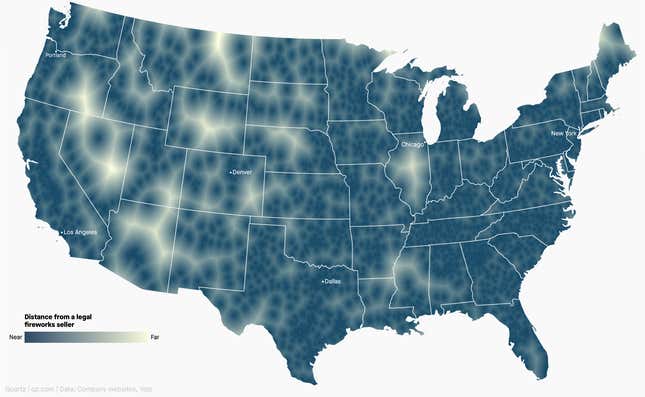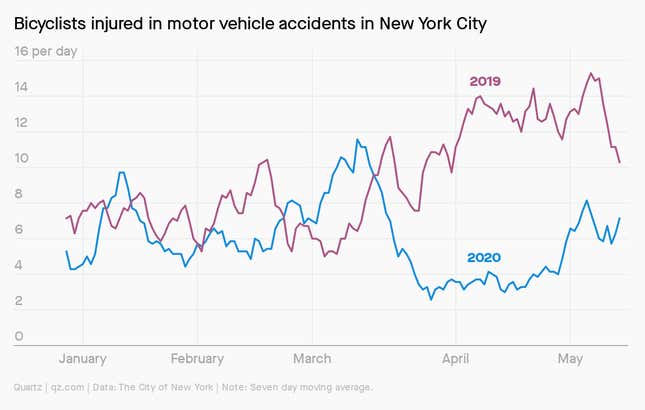Good morning, Quartz readers!
We’re taking a couple of days off, so you won’t be receiving a Daily Brief on Monday or Tuesday. If you find yourself going through Quartz withdrawal, be sure to check out our new homepage. It never takes vacation days.
Here’s what you need to know
The US Senate passed a Hong Kong sanctions bill. The legislation, which punishes businesses that aid China in its repression of the city, now heads to president Donald Trump to sign. Meanwhile, one of the city’s most high-profile activists fled overseas to an undisclosed location.
A trial over Jamal Khashoggi’s death opens in Turkey. Istanbul prosecutors have indicted 20 Saudi officials in connection to the murder of the journalist in 2018. Among them are the former deputy head of Saudi Arabia’s general intelligence and a former royal court adviser, who will almost certainly all be tried in absentia.
England opens up. From tomorrow onwards, bars, eateries, hair salons, and other leisure activities will resume business as usual for the first time in over three months. The government has told people not to “overdo it.”
The US had its biggest single-day increase in Covid-19 cases… More than 50,600 new cases were reported Wednesday, and more states ordered indoor businesses closed. But a sunny jobs report for June kept markets in the green…
…and celebrates Independence Day. Trump is going ahead with a fireworks display over the White House tomorrow that’s expected to draw large crowds, despite objections from the mayor of Washington, DC. Health officials are imploring Americans to stay home this weekend.
Mapping fireworks deserts
There are thousands of locations selling fireworks in the US. The weeks leading up to July 4, are peak sales season. This year, complaints about illegal fireworks displays are up across half a dozen major cities. Seemingly, the best you can do is get very far away from sellers.
Quartz collected over 7,000 fireworks seller locations from company websites and Yelp to determine the areas in the contiguous US that are the farthest from legal fireworks sellers: the fireworks deserts of the US.

We asked about the new normal

Earlier this week, we asked you to tell us which of these four predictions for the next five years will be the most accurate. Here are the results:
34% “The way in which we travel, and think about traveling, has changed, and I’m sure this will be long-term.” —Yolanda Edwards, founder, Yolo Journal
28% “This catalytic moment offers us a unique opportunity to reimagine how students learn.” —John Goodwin, CEO, the LEGO Foundation
21% “The next five years need to be a time of drastic reengineering of our systems and structures to eliminate health disparities.” —Esther Choo, Oregon Health & Science University
17% “Social distancing and stay-at-home orders have leveled the playing field for business owners.” —Harley Finkelstein, chief operating officer, Shopify
For more expert opinions on how coronavirus will change the world in five years pay a visit to The New Normal.
For members: A tale of a two-wheeled city
While bicycle commuting is making inroads in cities across the US, its widespread acceptance is by no means a foregone conclusion. New York City is a particularly dynamic laboratory to test its adoption. Safety concerns—including an outright fear of death—are a major reason that many New Yorkers won’t ride bikes on city streets.

✦ Read more about where these changes are happening, and why, in our field guide to the commuting revolution. That and a lot more are all yours with a Quartz membership—currently on sale for 50% off! ✦
You asked about inflation
Are we heading towards inflation due to central bank spending? Or deflation due to reduced demand?— Boris
We love this question. Inflation numbers are calculated based on how much the cost of a typical “basket” of goods and services, known as the consumer price index (CPI), changes over time. Covid-19 has radically changed what people are buying—more food at grocery stores, less on transportation, etc.—making the measurement of inflation even more difficult than usual. A recent study tried to arrive at new Covid-adjusted inflation figures that suggest more inflation is happening than officials report.
But if we stick to US government statistics, CPI has dropped for three straight months, meaning that a dollar bought more in May than it did in April and so on. This indicates that we’re currently experiencing some deflation. But overall, the takeaway should be that we’re in uncharted waters and inflation numbers are nearly meaningless during the pandemic.
Surprising discoveries
Only one of Russia’s 85 regions said “no” to more Vladimir Putin. The Nenets Autonomous District in the Arctic rejected rule changes that would allow the president to stay in power until 2036.
There’s one more plot twist to The Da Vinci Code. Author Dan Brown’s ex-wife claims she came up with the premise for the best-selling thriller.
Researchers revealed the mysteries of tooth enamel’s structure. The findings could someday help prevent or reverse tooth decay.
Fifty-three countries supported China’s crackdown on Hong Kong at the UN. These include Cuba, North Korea, Venezuela, Zimbabwe, and Saudi Arabia.
Hundreds of elephants have mysteriously died in Botswana. The country, which has ruled out poaching as the reason, is now conducting lab tests to find out what’s killing the animals.
Our best wishes for a productive day. Please send any news, comments, dental-care tips, and patriotic fireworks to hi@qz.com. Get the most out of Quartz by downloading our app on iOS or Android and becoming a member. Today’s Daily Brief was brought to you by Isabella Steger, Mary Hui, Liz Webber, Dan Kopf, David Yanofsky, and Max Lockie.